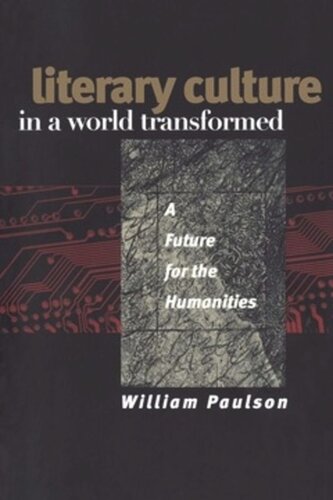

Most ebook files are in PDF format, so you can easily read them using various software such as Foxit Reader or directly on the Google Chrome browser.
Some ebook files are released by publishers in other formats such as .awz, .mobi, .epub, .fb2, etc. You may need to install specific software to read these formats on mobile/PC, such as Calibre.
Please read the tutorial at this link: https://ebookbell.com/faq
We offer FREE conversion to the popular formats you request; however, this may take some time. Therefore, right after payment, please email us, and we will try to provide the service as quickly as possible.
For some exceptional file formats or broken links (if any), please refrain from opening any disputes. Instead, email us first, and we will try to assist within a maximum of 6 hours.
EbookBell Team

0.0
0 reviewsLiterary studies are in danger of being left behind in the twenty-first century. Print culture risks becoming a thing of the past in the multimedia age; meanwhile, human life and society are undergoing rapid changes as a result of new technologies, the intensification of global capitalism, and the effects of human actions on the environment.In this transformed world, William Paulson argues for a radical renewal of literary studies. Modern literary culture has defined itself, in opposition to science, politics, and commerce, as a protected sphere of democratic and free inquiry, but today that autonomy may lead to isolation from the real dynamics of cultural and global change. Paulson clearly and convincingly demonstrates the need for literary studies to embrace both the unfashionable literary past and the technologically saturated future, and to train not a countersociety of cultural critics but citizens of the world who can communicate the irreducible strangeness and multiplicity of literature to a society on hyperdrive. His series of concrete proposals, ranging from a closer connection between literature and everyday language to the restructuring of undergraduate and graduate education, will immeasurably enrich current discussions of the humanities' role in the life of the world.